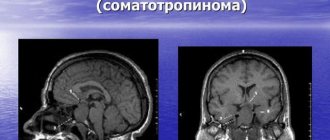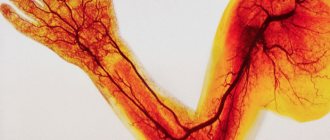Senile marasmus is a progressive disease that is diagnosed in elderly patients. The pathology is partly due to age-related changes occurring in the medulla. It is believed that the aging process is programmed at the genetic level. An additional influence on the development of the disease is exerted by factors associated with the adverse effects of the external environment (head injuries, intoxication, central nervous system infections).
Senile insanity - what is it?
This is the name of the final stage of mental failure. Elderly people with this illness are forced to overcome difficulties every day, they cannot help their children and grandchildren, and they themselves need care and supervision.
Advanced years complicate the detection of pathology. The most important symptom is a complete change in the usual way of life, a loss of self-image. This is a pathology to which people of senile age (after 60 years) are prone. Therefore, special attention is needed to grandfathers and grandmothers.
Severe dementia is characterized by loss of personality. The person himself changes, his ways of contact with the world around him change. Basic skills to solve everyday problems and take care of oneself are lost. An irreversible process leads to psychological changes. An elderly person sometimes becomes dangerous to his own people and to strangers.
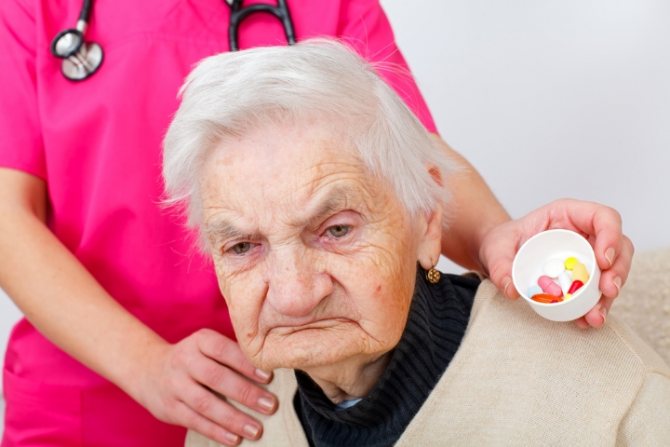
Causes of senile insanity
Dementia does not manifest itself in a healthy individual, only as a consequence of an existing disease. Latent pathology can occur without symptoms, but after complications it develops very quickly. This is an acquired disorder. Causes deterioration:
- nervous system disorders;
- pathological old age;
- bad heredity.
In older people, the immune system is weakened. When pathology occurs, it is activated against cellular formations, leading to a weakening of brain functions. The cause of degradation may be weakening of brain tissue and atrophy of the cortex. Cells also disintegrate under the influence of infections and viruses.
Note that alcohol also destroys the connections of neural formations. As a result, degeneration of brain functions occurs.
Leave a request to select a boarding house for a person with dementia
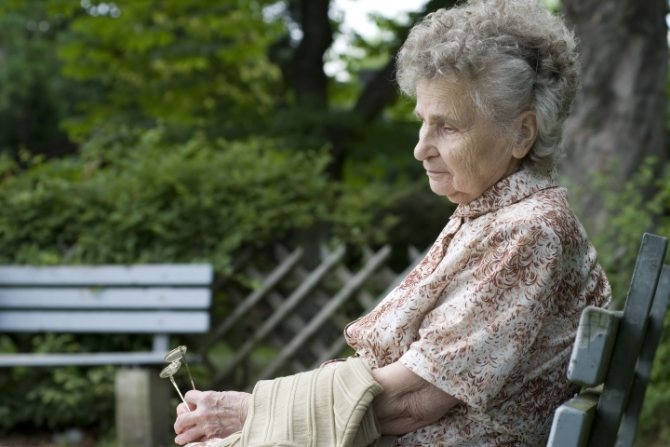
What is senile insanity - symptoms and signs
Manifestations are difficult to correct without qualified help. If there are complications, the disease progresses quickly, and the chance of rehabilitation decreases with each stage.
The problem is clearly illustrated in the medical literature. Classic primary sign: exacerbation of negative character traits. These are hysteria, mood swings, gloominess, grumpiness, isolation. Life with an elderly person turns into a series of difficult challenges.
People with this disease bring home garbage and all kinds of rubbish. They do not throw anything away and prohibit others from doing so. Greed becomes inadequate. Egocentrism increases many times over. Similar personalities:
- do not worry about relatives;
- they forget the faces of children and grandchildren;
- indifferent to others;
- keep things that mean nothing.
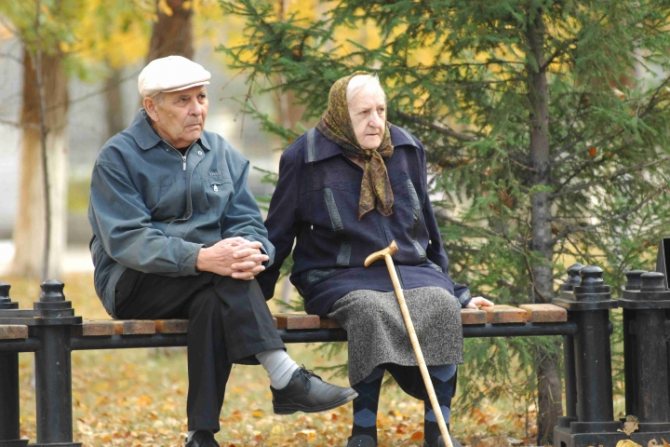
It is very difficult to independently monitor such individuals. They require increased attention, control and patience:
- They stop taking care of themselves and forget about basic hygiene. If the senile person does not have relatives or friends, then they are found in houses where the rooms are filled with garbage and the smell is already bothering the neighbors.
- A sign of senile insanity in women is an unhealthy appetite. They forget about recent meals and may eat food uncontrollably.
- Even a previously developed person loses his will and personality under the influence of dementia. Instincts become more acute and become more important than socialization.
- If the frontal cortex is damaged, then the symptom is hypertrophied sexuality and cheeky behavior.
Elderly people with such mental disorders are not able to exist independently. Progression leads to complete loss of abilities. But if you contact the “Zabota” boarding house network, your loved ones will be provided with round-the-clock care and rehabilitation.
Temporary and permanent accommodation in comfortable rooms, supervision by specialists is possible. Individual programs that include exercises to activate new neural connections. Breathing exercises, sessions with a psychologist, fine motor skills training.
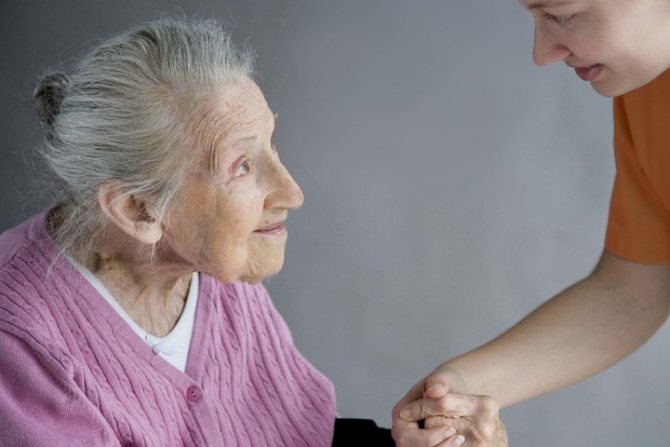
Stages and symptoms of the disease
There are mild, moderate and severe. Each is characterized by the degree of manifestation:
- Easy. Symptoms of senile insanity at first are reduced to disturbances in the field of intelligence. Weakly expressed characteristics. Independence and skills in solving everyday issues are preserved.
- Moderate. Critical perception decreases sharply, and impairment of cognitive skills worsens. Previously familiar household appliances turn into an overly complex puzzle. There are problems with the door lock and intercom.
- Heavy. A person no longer retains independence, he loses memory and does not recognize relatives. Leads to weakening of self-control. Behavior becomes inappropriate, even to the point of increased aggression. Requires care and constant monitoring.
Leave a request to select a boarding house for a person with dementia
How to recognize a mild degree
At the primary stage, negative character traits become aggravated. A previously generous pensioner transforms into a completely stingy down to the smallest detail, grouchiness, tearfulness, and anger increase. Having highlighted the characteristics of a mild degree, we can understand that the signs of senile insanity are:
- decreased intellectual abilities;
- inability to concentrate on one action for a long time;
- erasing dates, names, and recently occurring events from memory;
- mood swings, depression;
- insomnia due to anxiety;
- loss of interest in previously loved activities;
- changes at the neurological level.
The first signals indicating the onset of a moderate degree of illness
Primary symptoms worsen, new ones appear:
- An elderly person does not remember what he read a minute ago.
- May get lost in an unfamiliar place.
- Attention is scattered, the ability to concentrate is lost.
- Memories of the distant past emerge, but the patient will no longer remember recent events. Forgets the names of children, grandchildren, great-grandchildren, neighbors on the landing.
- Vivid outbursts of aggression are replaced by apathy and lack of will.
- Self-defense instincts become dominant and delusional ideas about danger appear. The old man has thoughts that everyone around him is plotting something against him.
Signs of senile dementia in women at this stage are more pronounced. Close people are accused of deliberately wanting to harm the patient.
There may be sudden improvements that quickly disappear. Neurological symptoms are added. Urinary incontinence, hallucinations, frequent falls. Epileptic seizures are common. Passive control is required.
Manifestations of the advanced phase of disorders in old age
During this period a person:
- I’m no longer ready to remember my own name and age,
- cannot identify himself in the mirror, does not recognize anyone from the family.
- Vocabulary is reduced to a minimum. Speech becomes so poor that the patient is unable to name some objects and phenomena.
- Understanding of what is happening is impaired.
- The skills of reading, writing, and listening to long texts disappear. Depression turns into elation. Life borders on paranoia.
Senile insanity manifests itself as a loss of cognitive abilities. The patient can talk to himself or to a non-existent interlocutor, perceives even a loved one as an enemy, and displays open aggression. Hallucinations and paranoia make him dangerous to others. He can no longer cope without outside help. He needs to be fed, washed, and changed. And under no circumstances should you leave him alone.
Therefore, if you do not have the opportunity to organize round-the-clock supervision of a relative,... Here they will not only provide care, but also prescribe treatment. After all, if senile insanity is not treated as a disease, then life expectancy is reduced to five years.
Comparison of the behavior of a healthy and sick person
Senile marasmus is a severe multiorgan pathology, which is the final stage of senile dementia. For several years, the body has been subjected to destructive pathological changes, and marasmus is a deeply serious condition with pronounced symptoms. Treatment of advanced dementia does not bring results and is aimed at alleviating the patient’s condition, so it is important to consult a doctor at the first signs of the disease.
Most people in society know who senile people are, due to the high frequency of the disorder. The disease manifests itself in all its glory after 60 years. Early manifestation worsens the prognosis and all symptoms develop at lightning speed; late occurrence suggests slowly progressive changes extended over time. Signs of insanity:
- worsening negative character traits (a greedy person becomes a stingy miser, sloppiness turns into a complete lack of self-care);
- increased egocentrism - the need to control everything and everyone increases;
- women experience delusional disorders (complain that their relatives want to poison them or rob them);
- indifference and callousness towards others;
- there is a desire to walk through garbage dumps and store the trash you bring at home;
- uncontrolled appetite;
- memory disorders (dates, events, recognition are erased from memory);
- disorientation in space;
- cachexia – severe exhaustion.
Senile is a person in need of maximum care, care and treatment. An important condition is to ensure the following regime:
- a cozy, familiar and familiar environment for the patient (it is not recommended to transport a person to unfamiliar, even better living conditions);
- encouraging physical activity (participation in cleaning, cooking, simple household chores);
- daytime nap;
- walking in the park together with the patient;
- eating foods rich in proteins, microelements and vitamins (fish, vegetables, herbs, fruits).
Drug therapy is mainly symptomatic and aimed at treating the underlying disease:
- Neuroprotectors – nootropil, mexidol, cinnaresin.
- Calcium antagonists – verapamil, Cerebrolysin, Dilgart.
- Antidepressants - azaphene, tryptophan, preparations based on St. John's wort.
- Antipsychotics – clozapine, haloperidol, dicarbine.
The disease has become much “younger” in recent years and knows no boundaries. Dementors can become not only those who are over 70-80 years old, as was previously thought, but also fifty. The symptoms frighten those at home who are in the same area as the “monster,” who loses his memory, throws dishes and destroys the apartment, rushes to fight on loved ones, smears excrement on the walls and bed, and often runs away from home.
Often the population does not have complete information about how to deal with such patients. Doctors prescribe therapeutic treatment, but do not say how the caregiver’s existence will change in the future.
This problem can be solved, because in Russia there are a large number of institutions for the elderly. For example, the network of boarding houses for the elderly “Zabota” presents 10 cozy houses in the Moscow region. They accommodate more than 500 wards. Medically trained staff provide first-class care for the elderly.
A complete five-course meal has been developed, where the menu is compiled individually for each person, according to the recommendations of a specialist. The staff takes care of physical and mental health. Every day they try to diversify their leisure time with active games, musical evenings, thematic conversations, and picnics. Gymnastics and classes to restore mental abilities are conducted daily.
Leave a request for selection of a boarding house
for an elderly person with dementia
Basically, the impetus for negative changes is already existing diseases that arose due to damage to the central nervous system, such as Alzheimer's, Pica and Lewy body syndrome. But the death of brain cells can also be provoked by:
- High blood pressure.
- Atherosclerosis.
- Benign and malignant tumors.
- Stroke.
- Addiction to tobacco and alcohol.
- Head injuries.
- AIDS.
- Meningitis.
- Viral encephalitis.
- Multiple sclerosis.
- Endocrine pathologies.
- Lupus erythematosus.
At risk are people whose immediate relatives were already dementors under the age of 65, or suffered from diabetes and obesity.
You will determine the onset of the disease by how the patient formulates her ideas during a conversation, how poorly she has become able to remember information, whether she is able to reason and analyze, how she conducts conversations with others and how attentive she is.
We will also give you 12 signals that you can use to make a preliminary diagnosis.
Don't get discouraged if you can't find the right word from time to time. Perhaps the reason is excitement. But if you or your relative call the bed “the thing they sleep on” and are unable to remember the correct name, then this is a signal that there are brain disorders and it’s time to take action. And the sooner the better.
In addition, if you find it difficult to describe your thoughts on paper and feel inhibited, then dementia is already progressing!
It often happens that out of absent-mindedness we put something somewhere and then look for it. Or we forget the name of a friend, artist and writer. We remember a conversation or event that happened for a long time. Here, a doctor’s consultation is already necessary, since this may become a sign, if not of dementia, then of inflammation or atrophy of the prefrontal cortex of the brain, the main ganglia.
But nervous system failures also include the following symptoms:
- request to repeat the same sentence several times;
- the need for constant reminders and notes on paper;
- difficulty remembering what recently happened.
Bad dream
If you notice a disturbance in your relative’s sleep patterns, that is, he wants to stay awake at night and rest during the day, this is often a signal of the onset of an illness.
Dementia overtakes people when their character changes dramatically. They become:
- oppressed;
- anxious and suspicious;
- depressed;
- silent;
- aggressive or grouchy.
They usually do this in an uncomfortable environment and when they perform unusual actions.
Errors in judgment
Contact your doctor immediately and get tested if you:
- They stopped filling out bills and documents correctly.
- You can no longer distinguish between the denominations of banknotes, are confused by price tags, and are unable to do basic mathematical calculations in your head.
- You can’t determine by eye the distance from one object to another, you get lost in orientation.
- You forget the order of simple processes (for example, preparing an omelet).
Clutter in my head
Significant disturbances lead to disorientation. Also, such a person does not remember past events, is not able to choose the type of activity at the moment, does not understand the meaning of the conversation, and does not distinguish the faces of acquaintances.
The peptide, which accumulates in the brain, destroys neural connections and forms amyloid plaques. Their accumulation leads to anxiety and irritability. Their increase contributes to shifts in the rhythms of sleep and wakefulness.
Patients lose the ability to adequately respond to sarcasm directed at them, often become offended and begin to behave inappropriately with the joker. And vice versa, they laugh when watching TV shows with tragic news (murder, catastrophes, mass disasters). Illogical and absurd behavior appears in the final stages of dementia.
It’s worth thinking about if your loved one has always been active, but recently became depressed, is not interested in the problems of other people, does not engage in his hobbies, has lost all interest in work and avoids the company of friends. If he spends the day from TV to bed, then he should be persuaded to see a neurologist.
Another clear evidence of the onset of dementia, where the following things are present:
- Reluctance to get yourself in order in the morning (comb your hair, brush your teeth, wash your face).
- Ignoring showering procedures.
- Untidy clothing.
- Laziness, due to which the patient does not trim his fingernails and toenails.

To persuasion and calls to take care of yourself, the answer is: “why do it if everyone around you is your own?”
Traffic violation
Difficulties in coordination lead to the fact that the patient often falls when walking. It is difficult for him to go down and up stairs and take a bath on his own. He will not find the right way home, as his spatial vision will change. He is unable to distinguish the parameters of objects, the distance between them.
All people, at least once in their lives, have such moments when they have hastily put something away, but in the morning you cannot find it. In a healthy person this happens in isolated cases. He calmly thinks about and reproduces the whole of yesterday evening step by step. Those affected by senile dementia may leave, for example, a comb in the freezer of the refrigerator, and then blame their household members for it.
Usually, people turn to doctors for help in the late stages of the disease, when the patient one day gets lost on the street, not remembering his address. At this time, it is already difficult to help a patient who has up to seven years to live. That is why doctors warn that if you experience the signs that we discussed above, you must definitely show up at a medical facility. It’s better to come to the clinic just like that than to miss the moment and watch your loved one’s mind fade away.
The examination should be carried out at the stage of apathy, absent-mindedness, aggressiveness, isolation and deterioration in the ability to remember.
Have you noticed strange illogical actions or an unkempt appearance in a relative, and this has alerted you? Then drop all planned activities and watch him for a few days.
Urgently go to a neurologist when you see such abnormalities:
- Decreased mental skills and memory.
- Aggression.
- Absent-mindedness.
- Loss of time and orientation.
- Forgetfulness.
- Substitution of concepts and phrases.
- Stumbling out of the blue.
- Mathematical errors when filling out invoices.
- Night wakefulness.
- Apathy at work.
- Loss of sense of humor.
- Walking aimlessly from room to room.
Features of senile insanity. What is this disease?
Senile insanity is a disease that is accompanied by irreversible processes that affect the entire human body at the cellular level. It provokes the destruction of neurons responsible for intellectual and behavioral activity. It is because of this that the patient may not notice serious changes. He is unable to learn new information, remember it, or control his actions. All changes that occur are negative.
Senile dementia can be divided into primary and secondary. Secondary marasmus occurs as a result of neurological disorders. They are provoked by drug and alcohol addiction, etc. Most often, older women suffer from senile insanity. After conducting medical research, it was found that every year more and more patients suffer from this disease. Unfortunately, this disease is also observed among people of working age.
Experts say that the main cause of senile insanity is a disruption of the immunoregulatory mechanism. This leads to the production of autoimmune complexes, which have a negative effect on the functioning of the brain. It is worth noting that this disease can be transmitted genetically. Dementia is divided into primary and secondary. The primary disease occurs as a result of independent damage to the cerebral cortex. It may be accompanied by the following ailments:
- Alzheimer's disease, Pica;
- dementia with Lewy body formation.
As for secondary senile insanity, it arises due to the following:
- chronic vascular insufficiency (occurs with atherosclerosis, severe and long-term hypertension);
- intoxication of the body (as a result of alcohol abuse or drug use);
- neoplasms in the brain;
- injuries;
- infectious diseases.
Dementia may also occur due to the following:
- viral diseases;
- HIV infections;
- autoimmune diseases;
- hemodialysis course;
- endocrine pathologies, severe kidney damage.
This disease can occur as a result of a combination of the above factors.
Characteristic
Senile dementia, also known as senile dementia, is characterized by deterioration of intellectual and mnestic functions. According to the definition, dementia is a stable decline in mental activity, manifested by its simplification and degradation. The condition is hardly reversible.
The prevalence is about 1.5% among people over 65 years of age. Among the population over 85 years of age, pathology occurs with a frequency of 17%. Dementia of vascular origin in Russia is detected more often (5.4% among the population over 60 years of age) than that caused by Alzheimer's disease. According to studies on a global scale, the prevalence of different forms of the disease, taking into account the causes of occurrence:
- Alzheimer's disease – about 60%.
- Vascular form – about 20%.
- Combined form (signs of the vascular form and Alzheimer's disease) – about 15%.
- Parkinson's disease – 7%.
- Other causes (intoxication, vitamin deficiency, endocrine disorders, metabolic disorders, multiple sclerosis, Creutzfeldt-Jakob disease) – about 10%.
Senile marasmus, which is also called senile dementia, is a disease associated with the aging process, which leads to structural and morphological changes in brain tissue. The aging process affects a person's adaptive abilities, daily functioning and activity.
The deterioration of the functional capabilities of cells leads to a general slowdown in the body’s activity, a decrease in the productivity of organs and systems. 85% of older people are diagnosed with chronic diseases. In 20% of cases, patients encounter difficulties in daily activities.
Symptoms of senile insanity. What to consider?
Dementia does not manifest itself with clearly defined signs. Most of them relate to age-related changes. It is necessary to know about the symptoms of the disease in advance, because this helps to avoid serious complications. Relatives of elderly people need to monitor their behavior and its changes. In addition, they should pay attention to the following factors:
- Memory problems. Organic brain damage leads to forgetting of events that happened recently. A person with senile dementia does not remember what happened to him yesterday, but can describe in detail events from the distant past.
- Behavior change. The patient no longer pays attention to his appearance. As a rule, he begins to take care of himself only if he is reminded about it. People with senile dementia are often apathetic. They are not interested in work or hobbies. Sometimes they can persistently prove that they are right or, conversely, become indifferent to the world around them. Shyness in such people also disappears. They can talk about erotic topics and demonstrate promiscuity.
- Disorientation in space. If patients are constantly at home, then, as a rule, they do not have any problems. Finding themselves in a place unknown to them, they may not find their way back.
- Deterioration of thinking. With dementia, people are unable to make final decisions. It is extremely difficult for them to choose the appropriate action in a given situation.
- Talkativeness. Some patients behave adequately in everyday life. Sometimes loved ones don't even notice the changes. But if you ask a person a question about his age, place of residence, date, he will be at a dead end.
Signs of dementia are becoming more pronounced every day. People who have this disease often become stingy. They may collect things in their home that they do not need at all. Symptoms of senile dementia in women at the initial stage are very original. They may experience increased appetite or great sexual desire. Over time, the patient ceases to care for herself independently. She forgets that she has children and grandchildren. In some cases, senile dementia provokes aggression, anger, and tearfulness in people. At an advanced stage, sick people require regular care. They should not be left at home alone, because they can cause a fire, flood, etc. The interesting thing is that they themselves do not notice this.
Stages of senile dementia
Senile dementia can be divided into the following stages:
- First (initial). This period is accompanied by a deterioration in mental abilities. At this stage, the patient is self-critical, but he is still able to take care of himself.
- Second. This stage is characterized by impaired intellectual abilities. The patient stops using ordinary things for their intended purpose. It is difficult for him to understand the operation of the telephone, kitchen stove, washing machine, TV, etc. The patient experiences constant depression during this period. Hygienic skills are preserved at the second stage. The patient is still able to take care of himself.
- Third. This is the final stage, which is the most dangerous and terrible for both the patient and his relatives. The person becomes insane. His close people still fail to explain that he needs to take care of himself and perform his usual actions. The patient can leave gas or water on, relieve himself anywhere, and eat without using cutlery.
The last stages are considered the most dangerous for humans. He is predominantly in a supine position. He has a metabolic disorder. Any somatic disease can cause death.
Diagnosis of senile dementia
A diagnosis can only be made after communicating with the patient and his relatives. Senile insanity is characterized by the following
- memory problems (short-term or long-term);
- self-criticism of the patient;
- deterioration of abstract thinking;
- the appearance of rudeness, loss of modesty;
- violation of social status;
- the occurrence of agnosia, aphasia, apraxia.
Senile dementia is very similar to depression. This is due to a lack of folic acid, vitamin B12, and thiamine in the body. In addition, this disease can occur due to serious nervous shock. Before making a diagnosis, the specialist conducts a thorough examination of the patient.
Diagnostics
The main task of differential diagnosis is to distinguish senile dementia from conditions accompanied by similar symptoms. These include changes in the level of consciousness (delirium), mild cognitive disorders (for example, aphasia - loss of speech due to damage to the speech centers of the brain), amnestic syndrome (memory disorder for events of the present while retaining memories from the past).
With the progression of cognitive deficit, an instrumental examination is carried out - CT, MRI, during which disorders are identified - tumor processes, hydrocephalus, vascular pathologies and deterioration of blood supply to the brain tissue. If there are atrophic changes in the brain matter in combination with deterioration of cognitive abilities, a diagnosis of Alzheimer's disease is made.
Laboratory tests show the concentration of glucose, cholesterol and other substances, which makes it possible to diagnose hypothyroidism and anemia. Special tests help determine the level of memory and cognitive decline. It should be taken into account that cognitive deficits can develop against the background of side effects of pharmaceutical therapy, which is carried out as part of the treatment of chronic somatic diseases.
Senile dementia that is treatable
Unfortunately, many people believe that this disease cannot be cured with special medications. In their opinion, medications are not able to overcome age-related changes. Their opinion is wrong, because senile dementia is treatable. Moreover, it must be carried out without fail. How to save a loved one from dementia? The result of treatment in many cases depends on the type of senile dementia. First you need to establish the cause of this disease. Even if it arose as a result of an incurable disease, there is still a way out. To do this, you need to purchase special medications. Their activities are aimed at slowing down the development of negative manifestations of dementia. The patient's relatives should contact a psychiatrist. The responsibilities of this specialist include talking with the patient. After the conversation, he determines the presence of atrophic processes in the brain. In addition, the doctor may refer the patient for examinations in the form of a brain CT scan or electroencephalography. You need to know that only a specialist can make a diagnosis! It is necessary to consult a doctor immediately after the first signs of senile dementia appear. You cannot delay this, because at the final stage it is impossible to carry out effective treatment. Only symptomatic treatment improves the patient's fate.
In order for the result to pleasantly surprise relatives, they need to create a comfortable environment at home. A person with senile dementia should be involved in household chores. This is what can stop the development of dementia. When a patient experiences hallucinations or insomnia, a specialist prescribes special psychotropic drugs. In the early stages, the patient should use nootropics, and in the later stages, tranquilizers.
Causes
Senile marasmus is a disease that is caused by structural and morphological changes in the tissues of the central nervous system, which is associated with the natural aging process. A sign of aging of the head brain is a decrease in fluid concentration. More often, the level of intracellular fluid decreases while maintaining the normal level of extracellular fluid. Similar changes occur around the age of 50. Other characteristic manifestations are widening of the cerebral sulci and an increase in the size of the ventricles.
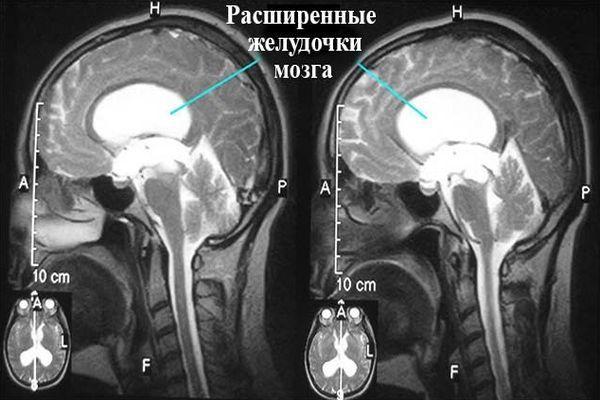
The indicated changes indicate massive death of cells forming the medulla. For example, an increase in the diameter of the ventricles is a diagnostic criterion indicating atrophic changes in brain tissue. The death of neurons occurs mainly in the cortical layer, hippocampus, and cerebellum. For example, the volume of the cerebellum decreases by 2% every 10 years.
When a person reaches 60 years of age, the rate of atrophic processes increases. The brain mass of the head decreases by 5% by the time people reach 70 years of age. Along with the death of neurons, axonal degeneration occurs, which worsens the relationship between neural structures and executive organs.
Senile dementia is a pathology that is caused by age-related changes in the brain matter and damaging factors, which increases brain dysfunction. For example, in the vascular form, the leading role in the pathogenesis is played by disruption of cerebral blood flow and accompanying cerebral infarctions.
In Alzheimer's disease, dementia develops against the background of the formation of amyloid plaques (formed by amyloid fibrils) and neurofibrillary tangles (accumulations of protein fractions with increased phosphorylation - containing a phosphoric acid residue) in the nervous tissue.
As a result of neurodegenerative processes, synaptic transmission of impulses deteriorates, which negatively affects the activity of executive organs. There are about 50 causes of dementia, which are associated with somatic and neurological pathologies. Common reasons:
- Metabolic (hypothyroidism, hypoglycemia).
- Traumatic (subdural hematoma, hydrocephalus, mechanical damage to nervous tissue).
- Tumor (tumor localized in the brain or metastatic form).
- Deficient (chronic stable anemia).
- Infectious (meningitis, encephalitis, abscess).
Chronic alcoholism can cause the development of senile dementia; in this case, it is necessary to treat the underlying disease as a pathogenetic factor. Chronic and acute intoxications are also involved in the pathogenesis of dementia.

Senile insanity: what should relatives do?
So, your loved one has been diagnosed with senile insanity. What to do in such a situation? We suggest not to panic and use our tips:
— Try to get involved in “games”, even if they irritate you. “I don’t have a single cracker in my house!” an elderly woman complained to her neighbors. And the granddaughter was very upset, because she knew that her grandmother had everything she needed. There really weren’t any crackers at home, but the old woman doesn’t have teeth and she can’t chew them. And she likes to drink tea with sweets. My granddaughter bought several packs of crackers. And now he shows them to his grandmother if she “wails” again.
If a person diagnosed with senile insanity demands that all the windows be closed, because “someone could get into them,” then we recommend not arguing and just doing what he asks.
— Try to share the latest news with the patient. Tell your grandmother all sorts of “gossip” about someone who got divorced, bought a new apartment, etc. Being impressed by your neighbor’s next prank, your grandmother will become somewhat calmer, and her attention will temporarily switch from you to other people.
- Give gifts for holidays and memorable dates. Even if it seems to you that the patient does not need anything, and he has everything. Buy grandma a handbag, something tasty, a handkerchief. Believe me, the elderly person will be pleased.
So, you have learned what senile insanity is, as well as about the symptoms and treatment of this disease.
Caring for patients in a boarding house for the elderly with a diagnosis of senile insanity
The private nursing home accommodates elderly people suffering from various health problems. The private boarding house "Autumn of Life" offers excellent conditions for patients diagnosed with senile insanity. Here they will be provided with qualified assistance, constant supervision and care. The establishment has everything necessary to ensure their safety. By the way, the boarding house is located in one of the most picturesque places in the Moscow region.
Dementia is an age-related disease that is accompanied by a decrease and further loss of intellectual abilities, household skills, etc. It is very difficult to care for such a patient. Many children and grandchildren try to use the services of a specialized institution in the event of a relative’s illness.
The stage of the disease determines what kind of help the patient needs. At an early stage, a person simply becomes more distracted. He may forget about the need to turn off the gas or water. But later the patient loses the ability to self-care. In addition, senile insanity is often accompanied by aggressive behavior of the patient. The nursing home has employees who know how to care for such patients and how to act in emergency situations. They are ready to take responsibility for ensuring the comfort and safety of patients.
The boarding house "Autumn of Life" offers the following services for its guests (including for patients diagnosed with senile insanity):
- Separate room, necessary equipment that meets safety requirements;
- 24/7 surveillance;
- 24-hour skilled care;
- Health monitoring;
- Monitoring compliance with doctor's orders;
- Accommodation at an affordable cost;
- Six meals a day;
- Providing moral support.
Unfortunately, it is currently not possible to completely cure senile insanity. However, modern medicine has the potential for symptomatic treatment of dementia. This therapy can significantly alleviate the patient’s plight. By the way, psychosocial rehabilitation is also considered effective.
A private nursing home guarantees to patients diagnosed with senile insanity:
- Calm and favorable atmosphere;
- Attentiveness of the staff. The patient will be helped to eat, wash, etc.;
- Safety. Thanks to the non-slip flooring, the presence of handrails, and the absence of unnecessary furniture, the boarding house is a safe place for a patient diagnosed with senile insanity to stay;
- Moral support, respect.
To reserve a place for your elderly relative at the Autumn of Life boarding house, call 8-495-003-19-56 or use the online call back form.
Request a call
Recommendations for relatives
A senile person is a person in need of careful care, care and observation. A huge responsibility falls on the shoulders of relatives, which requires high physical, moral and emotional endurance. What should relatives do if their loved one has fallen into insanity? Recommendations:
- creating comfort;
- first aid kit, cutting and piercing objects - put them in inaccessible places;
- control of medication intake;
- purchase a bracelet on which information about the patient suffering from insanity will be written (full name, age, address and telephone number of the relative);
- post instructions for the patient throughout the apartment;
- take care of drawing up a will;
- in case of strong irritation with the patient, remember that once it was a loved one who became a “child”;
- turning the patient's relatives to a psychologist will help to see the situation in a different light.
Elderly patients with senile dementia require constant support. To do this you will need:
- Create a cozy and favorable atmosphere at home;
- Talk to the patient only in a calm tone;
- Address a person by name;
- When speaking, you should use simple phrases and words;
- Help with daily activities: dressing, eating, bathing, showering;
- When communicating, you should remember the old days;
- It is necessary to repeat the phrase if the patient does not understand its meaning.
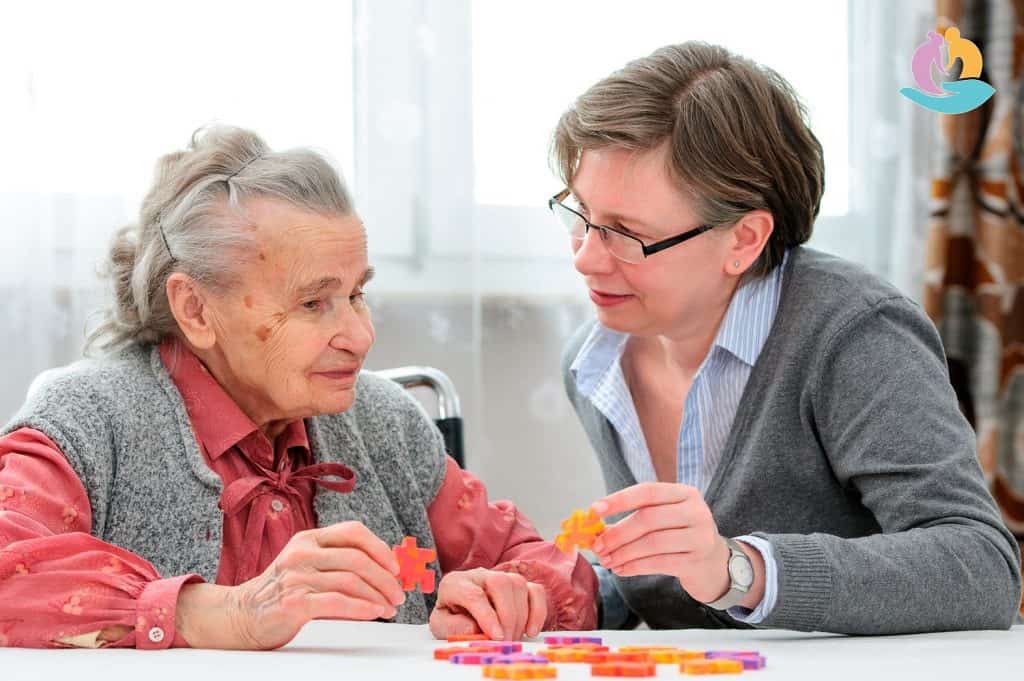
Insanity treatment
The possibilities of drug intervention in this case are very limited. Care comes first, as well as supervision, since it is difficult for patients to carry out self-care. Due to disinhibition of drives, as well as memory disorders, patients become dangerous to others and, of course, to themselves. A home environment and appropriate care are important for the patient, since staying in a hospital environment can worsen the condition.
It is necessary to ensure the highest possible activity for the patient, which will prevent the development of pulmonary pathology, loss of appetite, the appearance of bedsores, and will also help mobility in the joints.
Treatment of vascular disorders has a positive effect on the disease marasmus. Vitamin therapy is prescribed. Nootropics are indicated. Insomnia can be eliminated by following regular routines, walks in the fresh air, and thoughtful activities during the day. At night, psychotic drugs used against severe fussiness are indicated in small quantities.
Psychoneurologist Hartman N.N.
Doctor of Medical and Psychological
The information presented in this article is intended for informational purposes only and cannot replace professional advice and qualified medical care. If you have the slightest suspicion that you have insanity, be sure to consult your doctor!
Features of therapy
Senile insanity provokes organic damage to brain neurons. In this case, the pathological processes are irreversible, so it is impossible to cure the disease. However, modern treatment methods make it possible to slow down further death of nerve cells and improve the patient’s quality of life.
Drug treatment involves taking the following medications:
- Nootropics (Lucetam, Piracetam, Pramistar, Phenotropil, Pantogam, Cerebrolysin). Medicines are widely prescribed in the early stages of the disease to restore memory and improve brain activity;
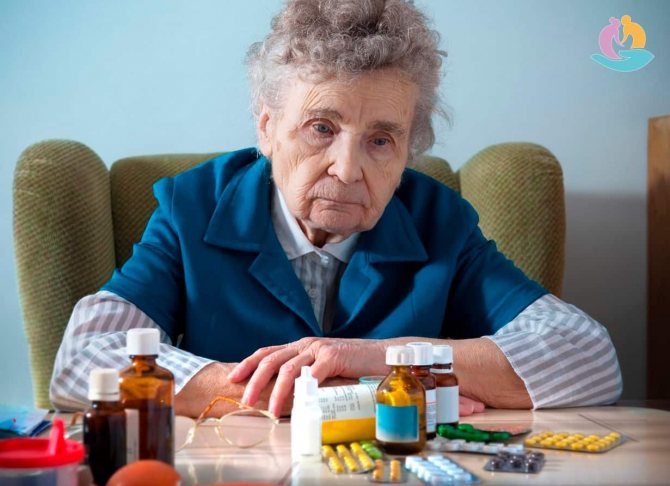
- Antidepressants (Lerivon, Amitriptyline, Coaxil). The drugs help eliminate anxiety, depression, and relieve emotional stress;
- Tranquilizers in small dosages (Phenazepam). Treatment must be carried out with caution, because discontinuation of the drug can provoke the development of severe anxiety and depression;
- Sleeping pills and sedatives (tincture of motherwort, valerian, Novopassit, mint, lemon balm). Herbal preparations effectively reduce emotional stress, normalize sleep, and rarely provoke the development of adverse reactions.
Important! The dosage and regimen of taking the listed medications is determined solely by the doctor. Self-medication can only worsen the course of the disease.
Experts recommend carrying out therapeutic activities in a familiar environment for the patient in order to reduce the patient’s nervous tension. However, treatment requires constant care and supervision of an elderly person, which is not always possible to organize at home. In such cases, the optimal solution would be to place the patient in special boarding houses for elderly people with dementia.
Important! In addition to drug therapy, patients with senile insanity need regular physical activity, communication with relatives, and walks in the fresh air.
Special attention should be paid to the nutrition of an elderly patient. You will need to exclude heavy foods from your diet (fatty, fried, spicy foods, processed foods). Nutritionists recommend adhering to the rules of a balanced diet, eating small portions every 3-4 hours.
Important! If symptoms of cachexia are present, the patient should be fed liquid or pureed foods.

In the initial stages of senile insanity, psychotherapy is widely used to restore or form new behavioral reactions. However, at the third stage, this treatment is not effective.
How to prevent senile insanity?
To reduce the likelihood of this dangerous disease occurring, you must do the following:
- Eat tomatoes and watermelons. These products are fortified with lycopene. This substance preserves a person’s ability to self-care.
- Use folic acid and vitamin B6. Lack of folic acid in the body leads to depression and senile dementia.
- Introduce garlic into your diet. This product contains substances that help restore intellectual abilities and improve memory.
- Use Ginkgo extract. It stimulates blood circulation, improves memory and increases intelligence.
- Take vitamin B12. Its deficiency leads to brain dysfunction. A lack of vitamin B15 can provoke “pseudomarasmus,” which occurs as a result of poor production of gastric juice.
- Do physical activity. Constant movement can stop the development of senile dementia.
To avoid this disease, you should eat healthy food, spend time in the fresh air, move and provide yourself with constant intellectual activity. You must stop drinking alcoholic beverages and smoking tobacco as quickly as possible! Senile dementia can be called a very serious disease that requires patience, calm and strength. If it is not possible to monitor the health of a sick close relative, then he should be placed in a private boarding house. Highly qualified specialists work here who are ready to provide both medical and moral assistance. They find an individual approach to each person, taking into account all his wishes. Using the services of a private nursing home, the patient’s relatives will be able to carry out everyday activities, and he will be able to spend his old age in the most comfortable conditions! And you will no longer have to regularly watch the suffering of an elderly person.
- Psychological assistance to Alzheimer's patients.
- Alzheimer's disease in older people.
- Senile dementia: signs, therapy, prevention and myths.
Need 24/7 skilled care? Leave a request for selection of a boarding house.
Manager Natalya
The first signs of dementia in women and men
There are significant differences and common features in the development of mental disorders in different sexes. But any initial manifestation is characterized by:
- speech problems;
- impaired perception and recognition;
- inability to perform a sequence of actions without difficulty;
- need for daily care and attention.
You should see a doctor immediately; you cannot wait until a mild stage of mental disorder develops into more serious ones and the personality begins to rapidly degrade.
What are the stronger sex exposed to?
Note that in them it does not manifest itself as clearly as in women, but the end result is still deplorable. Senile dementia in men - signs:
- penchant for moralizing;
- suspiciousness - believes that everyone around him poses a danger to him;
- grouchiness, when a pensioner is annoyed even by care and a good-natured attitude;
- do not accept the opinion and judgment of another person;
- treats everything new categorically;
- greed, egocentrism, and jealousy worsen;
- excessive boastfulness.
All this gradually leads to personality degradation and loss of any skills, loss of capacity and independence. The last stage is irreversible.
Female dementia
Symptoms and signs of senile dementia are more common in women than in men. Moreover, these moments are more pronounced, which means the disease progresses faster. Characteristic features of insanity:
- stubbornness;
- tearfulness;
- increased self-pity;
- manic suspicion;
- a thirst for attention, replaced by a desire for total loneliness.
The manic delirium of damage intensifies. Often a pensioner is sure that her loved ones no longer love her and wish her death. She is afraid of being poisoned and does not accept food from relatives.
Differences in both sexes
The female manifestation is characterized by more pronounced emotional instability; patients remain depressed longer. Symptoms of senile insanity are generally more severe in women than in men. They are also more stubborn and suspicious. Prone to delirium and excessive tearfulness. But, at the same time, they are less aggressive. Due to the vulnerability of a person in a healthy state, it is more difficult for them to detect the first bells signaling trouble.
The stronger sex is prone to depression, turning into apathy. They lose weight and begin to neglect hygiene. Anger and stinginess worsen. Increased drowsiness and periods of insomnia due to unexplained anxiety were also noted.
Therapy
Under the supervision of competent specialists, the progression of the disease can be stopped. The doctor may prescribe tocopherol, pyridoxine, thiamine. When severe psychosomatic symptoms occur, tranquilizers are prescribed.
But although the doctor will monitor the symptoms and prescribe treatment for senile insanity, it is impossible to completely cure it. But you can make your relative’s life easier. The “Zabota” boarding house network will help with this. We enable people with dementia to live full lives. This is facilitated by:
- individual approach and building a rehabilitation program for each elderly person with a complex illness;
- special lesson program;
- accommodation in comfortable rooms with daily cleaning. 24-hour care;
- animation and entertainment programs that are designed to restore memory and develop personality.
In addition, there are five meals a day, walks in the fresh air and health-improving gymnastics under the supervision of a specialist, and organization of proper leisure time. Communication with peers is valuable. Many find friends or even spouses.
Treatment
It is impossible to completely cure senile dementia. The main goal of treating senile dementia is to slow the progression of the disease and reduce the severity of manifestations. To cure the disease, pharmacological and psychosocial methods are used. Treatment of senile insanity is focused on the leading symptoms.
Acetylcholinesterase inhibitors (Galantamine, Rivastigmine, Donepezil) are drugs that are used to correct cognitive deficits, especially those caused by Alzheimer's disease. To combat dementia in the elderly, drugs such as vitamins (groups B, E), monoamine oxidase inhibitor Selegiline (antioxidant, neuroprotective effect), cerebral blood flow correctors, nootropics (Cerebrolysin, Ginkgo biloba) are prescribed.

In the vascular form, arterial hypertension is treated, which is a risk factor for the development of dementia. Your attending physician will tell you how to treat senile insanity. The therapy program is selected individually. Caring for older people involves providing assistance with eating, dressing, hygiene procedures, and performing routine household tasks. The patient's relatives often have to care for him for years.
Forecast
An incurable disease without qualified help constantly progresses. Psychological degradation ranges from one to ten years. At the last stage, the patient should not be left unattended, since inappropriate behavior can affect the life and health of others.
The cause of death can be cachexia - extreme exhaustion of the body, falls and bedsores, or an accident. It is possible that a person who stops taking care of himself will catch some serious infection.
Symptoms and signs of senile insanity worsen more quickly in older women and men. Without proper attention, it ends in the loss of any cognitive abilities.
How to deal with senile insanity
The condition is analyzed and diagnosed by a physician. Treatment is prescribed for each specific patient. In addition to drug treatment, diet and psychotherapy are provided.
You need to deal with manifestations under the supervision of a specialist. At the initial stage, you can do everything at home, but later stages are better treated in boarding houses and specialized institutions.
It is necessary to equip the living space with non-slip handrails and mats, and, if necessary, acquire a wheelchair and a bed. Diet, exercises to develop the brain, memory, motor skills, and regular repetition of what you have learned will help combat the progression of the disorder.
Clinical manifestations
Senile dementia manifests itself with characteristic signs; the first thing the patient’s relatives need to do is consult a doctor. The disease is often combined with pathologies such as depressive, obsessive-compulsive, delusional disorder, and psychoses of various forms. Senile marasmus is a multiple deficit of mental and cognitive functions, which determines treatment tactics. The leading symptom of senile insanity is deterioration in memory function. Other signs:
- Abstract thinking disorder.
- Decreased level of logic in judgments.
- Violation of higher mental functions (praxis - the ability to consciously perform planned actions, gnosis - the ability of perceptual categorization, recognition of auditory, visual and other stimuli, self-awareness, spatial-constructive perception, speech).
A prognostic criterion for the development of dementia is old age. However, senile dementia is not considered normal. The development of dementia correlates with organic damage to the brain, which is often observed in patients of the older age group. How senile insanity manifests itself depends on etiological factors, the nature of the course of the pathology, and the premorbid background (the condition that precedes and contributes to the development of the disease). Characteristics:
- Slow start.
- Progressive course from mild manifestations to total dementia.
- The presence in the clinical picture of neurological disorders of varying severity.
- Often family history (presence of relatives with a similar diagnosis).
- Secondary nature of psychotic disorders.
Vivid, constant symptoms of senile dementia are persistent memory impairment. In the initial stages of the disease, difficulties arise mainly when memorizing new material. The person becomes forgetful and inaccurately or incompletely recalls events that happened in the recent past. A mild form of dysmnesia (memory disorder) interferes with social adaptation, but does not cause dependence on outside help.
With moderate dysmnesia, remembering new information becomes almost impossible. The learned material is retained in memory for a short period of time. Reproducing current life events is difficult. Events of the past gradually lose clarity and expressiveness, the patient begins to forget certain fragments of the distant past.

In severe dysmnesia, memories are fragmented and temporal sequence is lost. At this stage, among the leading signs of insanity in older women and men, it is worth noting perceptual impairments - the perception of stimuli coming from the outside world suffers.
The patient does not recognize his relatives, cannot recognize household objects, even when in a familiar environment, for example, at home. The main symptoms of senile insanity in men and women include decreased intelligence, deterioration of concentration, disorder of higher mental functions, additional signs:
- Personality change.
- Behavioral disorders (unreasonable aggression, disinhibition of behavior).
- Changes in mood (dysphoria - low mood, euphoria - high mood).
- Delirium, disturbance of perception.
- Deterioration of concentration function.
A mandatory diagnostic criterion is deterioration in intellectual and mental activity. Thinking is characterized by slowness. The specific situational component dominates in thought processes. The patient loses the ability to abstract from specific conditions and circumstances; he lacks imagination, spatial, abstract thinking.
He experiences difficulty in forming abstract concepts, and later in understanding the simplest concepts and ideas. Judgments are illogical, inconsistent, superficial. As a result, old people cannot cope with basic everyday problems. A decrease in concentration of attention is manifested by a reduction in the number of objects that are simultaneously held in consciousness within the framework of purposeful activity.
Clinical manifestations vary significantly between different patients and within the same patient at different periods of the disease. The spread of Alzheimer's disease has led to an increase in the number of cases of presenile dementia, which is caused by atrophic changes in the brain matter. Clinical manifestations correlate with the location of the damaged area of the brain.
For example, predominant damage to the frontal regions is accompanied by such disorders as deterioration in concentration and abstract logical thinking, weakened control of drives, and disorder of motor functions. Involvement of the upper segments of the frontal lobe in the pathological process is associated with the dominance of symptoms such as apathy and depression in the clinical picture.

Large-scale damage to nervous tissue in the orbital zones leads to the appearance of symptoms - disinhibition in behavior, impulsiveness, traits characteristic of psychopathy (decreased level of empathy, causeless anger, egocentrism, callousness). When the pathological focus is localized in the temporal zone, the clinical picture is dominated by affective disorders, impaired memory function, and personality changes.
Visual-spatial dysfunction is typical of dementia of the Alzheimer's type. The patient loses the ability to navigate in space. He cannot return home if he leaves the home. Inside the room, he is confused about the location of the rooms. The patient experiences difficulty performing actions that require spatial orientation (drawing, writing text, putting on clothes).
Constructive apraxia is manifested by the loss of the ability to copy geometric shapes and images. The deterioration of visual-gnostic function is accompanied by a violation of recognition of the faces of familiar people and familiar household objects. Damage to the medulla in the area of the Sylvian fissure leads to speech dysfunction. The patient forgets words, and reading and writing functions suffer at the same time.
Frontotemporal dementia is predominantly manifested by behavioral disorders and personality changes. The character of a person changes beyond recognition over time. A person loses the ability to perform simple everyday tasks. At the same time, signs are observed: apathy, depression, complete lack of initiative. Speech becomes scarce, vocabulary is significantly reduced.
At later stages, echolalia (uncontrolled repetition of words in someone else's speech) and speech perseveration (sustained repetition of certain words and phrases) develop. The subcortical form often develops against the background of neurodegenerative changes in brain tissue, for example, in Parkinson's disease. In patients with the subcortical form, mental activity slows down and the plasticity of mental processes is lost.
Another characteristic sign of the subcortical form is a pronounced neurological deficit, which is manifested by hyperkinesis (uncontrolled motor activity), akinesia (reduction in the volume and speed of movements), oculomotor disorders, tremor (trembling of the limbs, head).

